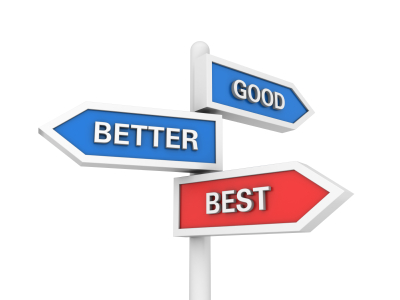I just finished reading a raw, brutally honest account of parenting a disabled child. The piece, Waiting to love my child, by Heather Kirn Lanier, is about being afraid to love a subsequent unborn child, but has startling insights into how we approach parenting of all children in the US.
Lanier’s daughter Fiona has Wolf-Hirschhorn syndrome:
I learned what that missing bit of her fourth chromosome could mean. Developmental delays and cognitive disabilities, yes. But also life-threatening seizures. Potential kidney failure. And a 1-in-3 chance of dying before age 2.
She gains a great deal of comfort and insight by reading Emily Rapp’s book, The Still Point of the Turning World, about parenting her son Ronan, afflicted with Tay-Sachs disease and fated to die in early childhood.
the experience of loving Ronan teaches Rapp lessons, many of which I’m slowly learning myself. For example: “It took this experience to help me see clearly, to understand that the bulk of the popular parenting advice champions an approach to living that completely complies with achieving bogus standards of success.”…
Rapp mentions the mothers who make “products” of their kids, the moms for whom parenting becomes yet another venture at which to succeed. In such a case, the child is not a person but a measurement of one’s success. But the limits of Ronan’s body refuse to offer Rapp the back-patting moments of typical modern parenting. Walked before age 1! Started signing at 9 months! Breast-fed immediately after delivery, that’s how smart he is!
The most startling insight is this:
And the only way to survive this, at least with any joy, was to see what Rapp also had to see: that the desire to approach parenting as a race, as a series of achievements measured by the output of one’s kid, is a cultural sickness…
It’s easy to see how this “cultural sickness” has overtaken parenting of the older child: the endless “enrichment” activities, the travel sports teams, the desperation to have one’s child accepted to an elite college. It’s far harder to recognize that this cultural sickness is the basis of contemporary natural childbirth philosophy, lactivism and attachment parenting.
All are embodiments of the cultural sickness of viewing parenting as a series of achievements to be met, instead of an experience to be had, and a child to be loved for who he or she is.
Childbirth has been transmuted from the emergence of the child from the womb to a race. Did you have an epidural? Did you have a C-section? Did your baby breastfeed immediately after birth? If not, you are a loser.
Why endure excruciating pain without pain relief? Why risk your child’s life in an effort to avoid a C-section? Why shove your breast into the face of a newborn still gasping to fully expand his or her lungs, before the baby could possibly be interested in nursing? Because parenting is a race and if you haven’t done those things, you’ve already been left in the dust before your baby is an hour old.
Advocates of natural childbirth, lactivism and attachment parenting insist that they are “better for the baby.” Leaving aside for the moment that there is no evidence to support those claims, let’s ask a more basic question: What do advocates mean by “better for the baby”? The ugly truth is that they believe the prescriptions and proscriptions to be a wind at the child’s back in the ongoing race in which the mother is competing against her peers.
Why are women “traumatized” after “giving in” and accepting an epidural in labor? Why are they devastated by a C-section? In what way are they “healed” by having a subsequent vaginal birth? Because they have imbibed the cultural sickness that views mothering as a competition, with signal moments that seem to exhaust the story of mothering.
Why are many women wracked with guilt about being unable to breastfeed? Because they believe that they have failed to give their children the edge in the competition.
Why did a woman pose for a Time Magazine cover photo breastfeeding her 3 year old, violating his privacy and exposing him to ridicule among his peers? Because she wanted to show the whole world that she is winning the race of contemporary parenting!
This obsession with competition forms an interesting subtext to Nicholas Day’s delightful series on Slate, How Babies Work. As Day explains in No Big Deal, but This Researcher’s Theory Explains Everything About How Americans Parent:
Every society has what it intuitively believes to be the right way to raise a child, what Harkness calls parental ethnotheories. (It is your mother-in-law, enlarged to the size of a country.) These are the choices we make without realizing that we’re making choices. Not surprisingly, it is almost impossible to see your own parental ethnotheory: As I write in Baby Meets World, when you’re under water, you can’t tell that you’re wet.
What is the “right way” in the US in 2013? American parents believe that maximizing opportunities for achievement.
… Interestingly, even the attachment parents, who were very adamant about being different in a lot of ways—they still gave the same answer.” And all the parents meant a very particular sort of stimulation. The parents talked about themselves in almost curatorial terms: They’d create a setting for intellectual growth…
Unlike Day, I’m not surprised that attachment parents felt the same way. Attachment parenting, and the related philosophies of natural childbirth and lactivism, are really about achievement and not about parenting.
As Kirn Lanier points out in her Salon piece, “there is a deeper, more transformative way to parent.”
I think it’s to be brought to our knees with a love we have no choice over. To surrender to that love. To say, Yes, yes, yes, I will love whomever we find ourselves holding…
Simply put: love a child for who he or she is, not for how many achievements he or she can garner in your competition with other parents.


